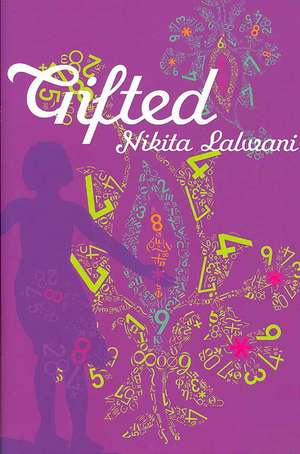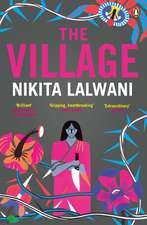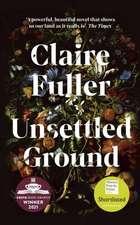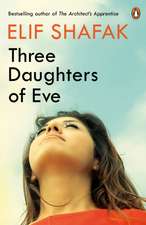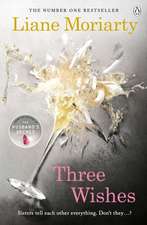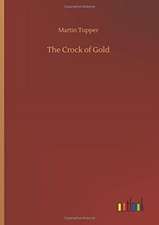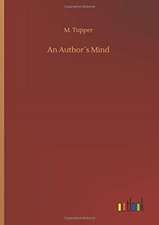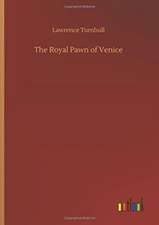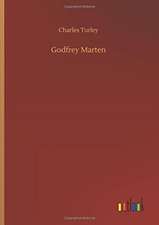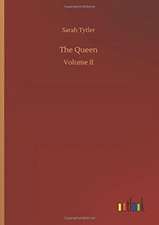Gifted
Autor Nikita Lalwanien Limba Engleză Hardback – 28 iun 2007
Vezi toate premiile Carte premiată
Costa Book Awards (2007)
| Toate formatele și edițiile | Preț | Express |
|---|---|---|
| Paperback (2) | 47.94 lei 24-35 zile | +66.22 lei 4-10 zile |
| Penguin Books – 30 apr 2008 | 47.94 lei 24-35 zile | +66.22 lei 4-10 zile |
| Random House Trade – 31 iul 2008 | 91.27 lei 3-5 săpt. | |
| Hardback (1) | 161.41 lei 17-23 zile | |
| Penguin Books – 28 iun 2007 | 161.41 lei 17-23 zile |
Preț: 161.41 lei
Nou
Puncte Express: 242
Preț estimativ în valută:
30.88€ • 32.25$ • 25.50£
30.88€ • 32.25$ • 25.50£
Comandă specială
Livrare economică 21-27 martie
Preluare comenzi: 021 569.72.76
Specificații
ISBN-13: 9780670917075
ISBN-10: 0670917079
Pagini: 288
Dimensiuni: 161 x 240 x 27 mm
Greutate: 0.59 kg
Editura: Penguin Books
Locul publicării:United Kingdom
ISBN-10: 0670917079
Pagini: 288
Dimensiuni: 161 x 240 x 27 mm
Greutate: 0.59 kg
Editura: Penguin Books
Locul publicării:United Kingdom
Notă biografică
Nikita
Lalwaniwas
born
in
Rajasthan
and
raised
in
Cardiff.
She
has
written
two
novels
previously,GiftedandThe
Village.Her
first
novelGiftedwas
longlisted
for
the
Man
Booker
Prize,
shortlisted
for
the
Costa
First
Novel
Award
and
won
the
Desmond
Elliott
Prize.
She
was
also
nominated
for
theSunday
TimesYoung
Writer
of
the
Year
Award.
She
lives
in
London.
Recenzii
A
sparkling
funny
and
poignant
study
of
a
young
maths
prodigy
struggling
with
her
gift
and
a
difficult
family
Superb, brilliantly realised. The searing narrative is unflinchingly and tenderly written
Pinpoints with genuine insight the bewilderment and anguish of a young woman marked out from her peers
Lalwani's evocation of teenage dislocation is pitch-perfect and she inhabits her heroine's interior world with tender authority
The novel's triumph is in elucidating the hurt of both child and parents. Lalwani compellingly depicts the pain and pleasure of breaking the rules
Beautiful, brilliant . . . Unveils the grand emotions and tiny details of other people's lives with insight, compassion, humour and heartbreaking honesty
Accomplished and confident. Much to admire from the assured descriptions to the well judged blend of comedy and drama
A poignant, vivid debut. Beautifully describes the dramas of growing up
A giddy portrayal of youthful exuberance unleashed that rings startlingly true
Compelling, heart-wrenching and laced with redemptive hope . . . Touching and funny
Superb, brilliantly realised. The searing narrative is unflinchingly and tenderly written
Pinpoints with genuine insight the bewilderment and anguish of a young woman marked out from her peers
Lalwani's evocation of teenage dislocation is pitch-perfect and she inhabits her heroine's interior world with tender authority
The novel's triumph is in elucidating the hurt of both child and parents. Lalwani compellingly depicts the pain and pleasure of breaking the rules
Beautiful, brilliant . . . Unveils the grand emotions and tiny details of other people's lives with insight, compassion, humour and heartbreaking honesty
Accomplished and confident. Much to admire from the assured descriptions to the well judged blend of comedy and drama
A poignant, vivid debut. Beautifully describes the dramas of growing up
A giddy portrayal of youthful exuberance unleashed that rings startlingly true
Compelling, heart-wrenching and laced with redemptive hope . . . Touching and funny
Extras
Chapter 1
Mahesh is sitting in his office, marking. He looks up at the arc of the window as a train rushes past, its urgency left behind in diesel scent and echoing clacks. The dank hush of autumn is settling into his room like a foregone conclusion. It is the eleventh season of its kind in his experience in the UK. The fourth of its kind in this room. Mahesh looks up. There are charts and pictures on the wall. The map of the world sits at an awkward angle, blue ocean disappearing behind the iron bookshelf. Books bulge in huge rows, pressing together files and papers, orange foolscap running in chunky alternation with black, white and gray. In the left corner of the room, by the whiteboard, the bumpy illustration of Gandhi peers out at him. In his mind there is an annoyance that delicately attacks his thoughts every few minutes.
Why did Rumi write that in her exercise book? This is the question that hooks into his conscience periodically: a tiny dental tool piercing soft gum. Why did she write it?
I went to play with Sharon Rafferty and Julie Harris and Leanne Roper in the woods. They let me play softball which is like rounders but with only two bases. Sharon said “let’s go and get the softball and racquets from my house.” When we got to her place we stood outside the gate and Sharon said “I just have to check you can come in Rumi because my mum doesn’t like colored people.” Then she went in with the others and I waited outside.
Thank goodness she came back and said it was OK. Then we went in and had pop ices and got the racquets. Mrs. Rafferty was sunbathing in the garden and looked red. We took the racquets and played softball in the woods.
“Colored.” The word had made him think of a crayon spreading a thick grainy brown over a round face, the kind of awkward pictures Rumi used to draw under duress when she was younger.
Again he looks at Gandhi, wizened and unflinching, in the corner of his room. What would they make of this back in college, cocooned as they had been in the company of ideas? Trotskyites, Gandhian Communists—they had found plenty of names for themselves back then, chewing betel, relishing the bitter stain on their lips and debating whether class war was compatible with nonviolence. What would they think of this name? What would they think of the conversation he had attempted with Rumi after reading it?
“Do you like your school, Rumi?”
“I don’t like the bullies.”
“What do you mean, bullies?”
“People who aren’t nice to me.”
“Do not let these things affect you. You are ten years old now.”
“What?”
“You should be like a tiger in the jungle. Like Shere Khan in The Jungle Book.”
“What do you mean, Daddy?”
“If someone hits you, then hit them back. If they hit you once, hit them twice.”
The words had come out of his mouth, as honest as a shotgun, and he had looked away when her eyes jumped. If you are shocked, so am I, he’d thought. But you are not going to be a victim. That I will not allow.
What would they think of this—the Hyderabad college collective—this world that he had chosen to inhabit, placing a solitary, all-important offspring right at the center? Come to that, what about Whitefoot, his current friend, colleague from the PhD course at Cardiff, Marxist himself—what would he think?
Another train goes past, carrying a heavy rattle inside it, dense as a migraine. The tremble of the room seems to jolt the Gandhi picture slightly. He can see a square of evening light on the glass, obscuring part of Gandhi’s face. Colored? Why did she write it?
It is four p.m., an early end to his day. He has marked four papers, and the room has lost most of its light. Mahesh screws the lid onto his fountain pen and places it in the outer pocket of his blazer so that the brushed steel is visible against the brown polyester mix. The pen had been a present from Shreene, bought with cash carefully siphoned from her first few paychecks, when she had begun to work after the birth. It is almost exactly the same age as Rumi. After ten years it still feels smooth to the touch, cool, not a single visible scratch or dent on the whole body of the piece. There is still that sensation of guilty pleasure at this luxury when he thinks about what it signifies, a tool of learning and wisdom—but a flamboyant one. He buttons up and puts the exam papers to one side, releasing the blind at his window before he locks up for the day, tucking two MSc dissertations under his arm to look at when he gets home.
Five years earlier, Rumi had come home one day and announced that Mrs. Gold wanted to come round and meet her parents. She was just five years old, in her first class at school. Mahesh and Shreene had arranged to leave work early on the appointed day, and were home by three thirty. Shreene began to fry some bhajis, while Mahesh descended into a deep silence, waiting in his shirt and tie in the living room. When Mrs. Gold walked in, Rumi was holding her hand.
“What a lovely walk home we’ve had together, Mr. and Mrs. Vasi,” she said, letting Rumi go in ahead of her.
Rumi squirmed and went suddenly quiet, looking up at her father. Mahesh stared at the teacher’s peroxide coiffure—whipped and sprayed into rounded peaks and troughs, like a butterscotch dessert. He was confused. Mentally he fought against relaxing, a natural response to the large smile exuded by Mrs. Gold.
“Is it possible to talk to you and your wife together?” she asked.
Shreene had brought in the snacks and joined him, sitting with her hands in her lap, still formal in her work wear, tights and heels. There was an alertness about her: she kept looking covertly at Mahesh, as if to say, “Give me the signal and I’ll go ahead with whatever it is we need to do.”
“What is it you wanted to talk about?” Mahesh said to Mrs. Gold, feeling the accented curves of his voice as though for the first time. “Is something wrong?”
“No . . . far from it, Mr. Vasi. I wanted to give you some news that I think will make you very proud parents.”
“And that is?” “Rumi is a gifted child!” Mrs. Gold declared, unleashing the words with a thrilled upward turn of the mouth.
Mahesh looked at Shreene, who was biting at the dry skin on her lower lip—a sign that she was tense. He looked at Rumi, who was staring at the floor, waiting for him to decipher the words. And then he cast his gaze back toward Mrs. Gold, and her radiant lines of teeth. “You mean she is doing well at school?”
“I mean more than that, Mr. Vasi,” said Mrs. Gold. “I mean that she is special. Different. Gifted.”
At this, Rumi started to fidget, scratching her nose and kicking her feet, looking from side to side, first at her mother, then at her father, her movements uncertain, exaggerated by the silence. Mahesh noticed that she had a scratch on her knee just below the hem of her corduroy dress, above the tight line of white sock gripping her calf. Shreene twitched her forehead at her daughter. Mahesh smiled at Mrs. Gold again, and softened his voice, aware that his daughter was listening to each word as he spoke. He tried to keep the pressure out of the sentences he began to create.
“Myself and my wife take . . . Rumika’s education very seriously. We are pleased that she is doing well in her studies and that her hard work has paid off. I am an academic myself—”
Mrs. Gold shook her head, interrupting. “With due respect, Mr. and Mrs. Vasi, I’m talking about something else. I am talking about a gift. Something that only comes along now and then. Rumi is a gifted mathematician!”
They were plunged into silence once more. Rumi moved her legs back and forth, pushing them rhythmically against the velour of the sofa. Mahesh registered vaguely that she was repeating the movement in batches of four, then pausing, like a physical chant. He watched her support one of her chubby little cheeks with a hand, which she made into a fist, balancing her elbow on her thigh. She was still staring at the floor.
“I am also a mathematician and I am glad that she is doing well in this subject, as you say. I have placed emphasis on it because it is my area of speciality,” said Mahesh, trying to maintain an amiable expression on his face.
“We at Summerfield believe that Rumi deserves to have this gift nurtured,” said Mrs. Gold. She leaned in, pulling her skirt together so that the pleat at the front disappeared neatly inside itself. She paused significantly, as though she was about to say something serious, possibly untoward. Rumi also leaned in automatically to listen, her swaying legs forcing themselves to halt, pressing a temporary dent into the sofa front. Even Shreene moved her body forward, raising her eyebrows expectantly.
“Have you heard of a place called Mensa?” said Mrs. Gold.
Mahesh felt exasperated. He had seen all the same adverts as her. The ads for this place she named with such careful tedium, as though she was rolling a diamond round her mouth. “Mensa.” He’d seen their childish IQ tests, fooled around with filling them out in the Sunday papers. He knew what Mensa was, for goodness’ sake. What did she take him for? And why was she so surprised that he and his daughter could string numbers together with reasonable panache? They were hardly shopkeepers.
He was “peed off,” as they said here: irritated. He tried to think of more slang, enjoying the taste of righteousness, dousing each word with it. He was “hacked off,” “cheesed off,” “not pleased.” What did she think? That he was some third-rate charlatan, preening his feathers under the banner of academia? He felt a rumble in his stomach as the bhajis fermented, rising as though to validate his sense of pique. Oddly, the sensation cheered him. He felt like making a grand statement to this woman, one that Rumi would witness, about how it was possible through strength and discipline to create your own destiny using the power of thought: through marks, percentages, papers, exams, numbers that had added up, in his case, to a big sum in small hands—a scholarship across the ocean.
He surveyed Mrs. Gold’s darting eyes. She was watching his wife as she sipped her tea. Shreene was returning her gaze, looking round the room at intervals. What preconceptions did she bring with her—this queer-spoken woman with her little smiles and polite contradictions? He was not going to make a grand statement. It would only confuse things. But, if he could, he would tell her everything. He’d tell her he’d got into all their universities—all the bloody jewels they treasured so exclusively in this country: that he had been offered a place at their Cambridge and their University College of London. He had ended up in Cardiff because they had offered the cash—several thousand pounds of it, a sum that no one could deny for its totality. Full fees. They had wanted him here, a foreigner with no more than five pounds in his pocket and a slip of a wife, bare-toed and shivering. That was how he had got off the plane with Shreene in 1972, newly wed and aware, dignified by the patronage of their redbrick institutions, sure as a compass, leading the way for them both.
He had not been among the thirty thousand Asians hemorrhaging out of the ugly scar in Uganda’s belly that same year, seeping into the dark spaces of Britain, afloat in the soiled bath water of Amin’s shake-up: the crawling masses who had fallen into the pockets of Leicester and Wembley. He was not going to be dissolved into the rivers of blood, among Enoch Powell’s armies of bacteria, defecating in people’s nightmares on the landscape of their precious country.
He was Dr. Mahesh Vasi, PhD, a man who had begun his maths career repeating times tables under a large tree in Patiala with fifteen schoolmates, embossed with dust and driven by the pure heat of numbers. Now he was here, working just over an hour’s commute away, speaking to a room of one hundred students each week, employed in name by the University of Swansea, subset of the University of Wales itself. What about that, then?
Mahesh cleared his throat and considered how to proceed. He uncrossed, then recrossed his legs with an air of what he hoped was leisurely contemplation. He still had to learn how to relax, uncoil the ritual desire to please. It was a shameful habit, nothing else, he told himself.
Shreene offered Mrs. Gold the plate of snacks. The vegetables shone through the batter with glistening heat: dark purple eggplant skins and green zucchini, pushing their thick curves through the fried covering. “Please—have one,” she said, smiling and pressing a paper napkin into the teacher’s hand. “Do you like spicy food?”
Mahesh took the opportunity to interject. “I know Mensa very well, Mrs. Gold. I’m happy to go there with Rumika and see what it is like.”
From the Hardcover edition.
Mahesh is sitting in his office, marking. He looks up at the arc of the window as a train rushes past, its urgency left behind in diesel scent and echoing clacks. The dank hush of autumn is settling into his room like a foregone conclusion. It is the eleventh season of its kind in his experience in the UK. The fourth of its kind in this room. Mahesh looks up. There are charts and pictures on the wall. The map of the world sits at an awkward angle, blue ocean disappearing behind the iron bookshelf. Books bulge in huge rows, pressing together files and papers, orange foolscap running in chunky alternation with black, white and gray. In the left corner of the room, by the whiteboard, the bumpy illustration of Gandhi peers out at him. In his mind there is an annoyance that delicately attacks his thoughts every few minutes.
Why did Rumi write that in her exercise book? This is the question that hooks into his conscience periodically: a tiny dental tool piercing soft gum. Why did she write it?
I went to play with Sharon Rafferty and Julie Harris and Leanne Roper in the woods. They let me play softball which is like rounders but with only two bases. Sharon said “let’s go and get the softball and racquets from my house.” When we got to her place we stood outside the gate and Sharon said “I just have to check you can come in Rumi because my mum doesn’t like colored people.” Then she went in with the others and I waited outside.
Thank goodness she came back and said it was OK. Then we went in and had pop ices and got the racquets. Mrs. Rafferty was sunbathing in the garden and looked red. We took the racquets and played softball in the woods.
“Colored.” The word had made him think of a crayon spreading a thick grainy brown over a round face, the kind of awkward pictures Rumi used to draw under duress when she was younger.
Again he looks at Gandhi, wizened and unflinching, in the corner of his room. What would they make of this back in college, cocooned as they had been in the company of ideas? Trotskyites, Gandhian Communists—they had found plenty of names for themselves back then, chewing betel, relishing the bitter stain on their lips and debating whether class war was compatible with nonviolence. What would they think of this name? What would they think of the conversation he had attempted with Rumi after reading it?
“Do you like your school, Rumi?”
“I don’t like the bullies.”
“What do you mean, bullies?”
“People who aren’t nice to me.”
“Do not let these things affect you. You are ten years old now.”
“What?”
“You should be like a tiger in the jungle. Like Shere Khan in The Jungle Book.”
“What do you mean, Daddy?”
“If someone hits you, then hit them back. If they hit you once, hit them twice.”
The words had come out of his mouth, as honest as a shotgun, and he had looked away when her eyes jumped. If you are shocked, so am I, he’d thought. But you are not going to be a victim. That I will not allow.
What would they think of this—the Hyderabad college collective—this world that he had chosen to inhabit, placing a solitary, all-important offspring right at the center? Come to that, what about Whitefoot, his current friend, colleague from the PhD course at Cardiff, Marxist himself—what would he think?
Another train goes past, carrying a heavy rattle inside it, dense as a migraine. The tremble of the room seems to jolt the Gandhi picture slightly. He can see a square of evening light on the glass, obscuring part of Gandhi’s face. Colored? Why did she write it?
It is four p.m., an early end to his day. He has marked four papers, and the room has lost most of its light. Mahesh screws the lid onto his fountain pen and places it in the outer pocket of his blazer so that the brushed steel is visible against the brown polyester mix. The pen had been a present from Shreene, bought with cash carefully siphoned from her first few paychecks, when she had begun to work after the birth. It is almost exactly the same age as Rumi. After ten years it still feels smooth to the touch, cool, not a single visible scratch or dent on the whole body of the piece. There is still that sensation of guilty pleasure at this luxury when he thinks about what it signifies, a tool of learning and wisdom—but a flamboyant one. He buttons up and puts the exam papers to one side, releasing the blind at his window before he locks up for the day, tucking two MSc dissertations under his arm to look at when he gets home.
Five years earlier, Rumi had come home one day and announced that Mrs. Gold wanted to come round and meet her parents. She was just five years old, in her first class at school. Mahesh and Shreene had arranged to leave work early on the appointed day, and were home by three thirty. Shreene began to fry some bhajis, while Mahesh descended into a deep silence, waiting in his shirt and tie in the living room. When Mrs. Gold walked in, Rumi was holding her hand.
“What a lovely walk home we’ve had together, Mr. and Mrs. Vasi,” she said, letting Rumi go in ahead of her.
Rumi squirmed and went suddenly quiet, looking up at her father. Mahesh stared at the teacher’s peroxide coiffure—whipped and sprayed into rounded peaks and troughs, like a butterscotch dessert. He was confused. Mentally he fought against relaxing, a natural response to the large smile exuded by Mrs. Gold.
“Is it possible to talk to you and your wife together?” she asked.
Shreene had brought in the snacks and joined him, sitting with her hands in her lap, still formal in her work wear, tights and heels. There was an alertness about her: she kept looking covertly at Mahesh, as if to say, “Give me the signal and I’ll go ahead with whatever it is we need to do.”
“What is it you wanted to talk about?” Mahesh said to Mrs. Gold, feeling the accented curves of his voice as though for the first time. “Is something wrong?”
“No . . . far from it, Mr. Vasi. I wanted to give you some news that I think will make you very proud parents.”
“And that is?” “Rumi is a gifted child!” Mrs. Gold declared, unleashing the words with a thrilled upward turn of the mouth.
Mahesh looked at Shreene, who was biting at the dry skin on her lower lip—a sign that she was tense. He looked at Rumi, who was staring at the floor, waiting for him to decipher the words. And then he cast his gaze back toward Mrs. Gold, and her radiant lines of teeth. “You mean she is doing well at school?”
“I mean more than that, Mr. Vasi,” said Mrs. Gold. “I mean that she is special. Different. Gifted.”
At this, Rumi started to fidget, scratching her nose and kicking her feet, looking from side to side, first at her mother, then at her father, her movements uncertain, exaggerated by the silence. Mahesh noticed that she had a scratch on her knee just below the hem of her corduroy dress, above the tight line of white sock gripping her calf. Shreene twitched her forehead at her daughter. Mahesh smiled at Mrs. Gold again, and softened his voice, aware that his daughter was listening to each word as he spoke. He tried to keep the pressure out of the sentences he began to create.
“Myself and my wife take . . . Rumika’s education very seriously. We are pleased that she is doing well in her studies and that her hard work has paid off. I am an academic myself—”
Mrs. Gold shook her head, interrupting. “With due respect, Mr. and Mrs. Vasi, I’m talking about something else. I am talking about a gift. Something that only comes along now and then. Rumi is a gifted mathematician!”
They were plunged into silence once more. Rumi moved her legs back and forth, pushing them rhythmically against the velour of the sofa. Mahesh registered vaguely that she was repeating the movement in batches of four, then pausing, like a physical chant. He watched her support one of her chubby little cheeks with a hand, which she made into a fist, balancing her elbow on her thigh. She was still staring at the floor.
“I am also a mathematician and I am glad that she is doing well in this subject, as you say. I have placed emphasis on it because it is my area of speciality,” said Mahesh, trying to maintain an amiable expression on his face.
“We at Summerfield believe that Rumi deserves to have this gift nurtured,” said Mrs. Gold. She leaned in, pulling her skirt together so that the pleat at the front disappeared neatly inside itself. She paused significantly, as though she was about to say something serious, possibly untoward. Rumi also leaned in automatically to listen, her swaying legs forcing themselves to halt, pressing a temporary dent into the sofa front. Even Shreene moved her body forward, raising her eyebrows expectantly.
“Have you heard of a place called Mensa?” said Mrs. Gold.
Mahesh felt exasperated. He had seen all the same adverts as her. The ads for this place she named with such careful tedium, as though she was rolling a diamond round her mouth. “Mensa.” He’d seen their childish IQ tests, fooled around with filling them out in the Sunday papers. He knew what Mensa was, for goodness’ sake. What did she take him for? And why was she so surprised that he and his daughter could string numbers together with reasonable panache? They were hardly shopkeepers.
He was “peed off,” as they said here: irritated. He tried to think of more slang, enjoying the taste of righteousness, dousing each word with it. He was “hacked off,” “cheesed off,” “not pleased.” What did she think? That he was some third-rate charlatan, preening his feathers under the banner of academia? He felt a rumble in his stomach as the bhajis fermented, rising as though to validate his sense of pique. Oddly, the sensation cheered him. He felt like making a grand statement to this woman, one that Rumi would witness, about how it was possible through strength and discipline to create your own destiny using the power of thought: through marks, percentages, papers, exams, numbers that had added up, in his case, to a big sum in small hands—a scholarship across the ocean.
He surveyed Mrs. Gold’s darting eyes. She was watching his wife as she sipped her tea. Shreene was returning her gaze, looking round the room at intervals. What preconceptions did she bring with her—this queer-spoken woman with her little smiles and polite contradictions? He was not going to make a grand statement. It would only confuse things. But, if he could, he would tell her everything. He’d tell her he’d got into all their universities—all the bloody jewels they treasured so exclusively in this country: that he had been offered a place at their Cambridge and their University College of London. He had ended up in Cardiff because they had offered the cash—several thousand pounds of it, a sum that no one could deny for its totality. Full fees. They had wanted him here, a foreigner with no more than five pounds in his pocket and a slip of a wife, bare-toed and shivering. That was how he had got off the plane with Shreene in 1972, newly wed and aware, dignified by the patronage of their redbrick institutions, sure as a compass, leading the way for them both.
He had not been among the thirty thousand Asians hemorrhaging out of the ugly scar in Uganda’s belly that same year, seeping into the dark spaces of Britain, afloat in the soiled bath water of Amin’s shake-up: the crawling masses who had fallen into the pockets of Leicester and Wembley. He was not going to be dissolved into the rivers of blood, among Enoch Powell’s armies of bacteria, defecating in people’s nightmares on the landscape of their precious country.
He was Dr. Mahesh Vasi, PhD, a man who had begun his maths career repeating times tables under a large tree in Patiala with fifteen schoolmates, embossed with dust and driven by the pure heat of numbers. Now he was here, working just over an hour’s commute away, speaking to a room of one hundred students each week, employed in name by the University of Swansea, subset of the University of Wales itself. What about that, then?
Mahesh cleared his throat and considered how to proceed. He uncrossed, then recrossed his legs with an air of what he hoped was leisurely contemplation. He still had to learn how to relax, uncoil the ritual desire to please. It was a shameful habit, nothing else, he told himself.
Shreene offered Mrs. Gold the plate of snacks. The vegetables shone through the batter with glistening heat: dark purple eggplant skins and green zucchini, pushing their thick curves through the fried covering. “Please—have one,” she said, smiling and pressing a paper napkin into the teacher’s hand. “Do you like spicy food?”
Mahesh took the opportunity to interject. “I know Mensa very well, Mrs. Gold. I’m happy to go there with Rumika and see what it is like.”
From the Hardcover edition.
Premii
- Costa Book Awards Nominee, 2007
